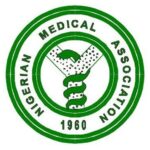In 2019, one of the topics of the plenary sessions of the Nigerian Bar Association (NBA) annual conference was titled: “Medical Negligence: Time to Change the Narrative”. I think the e-flyer carrying the topic was forwarded more than a thousand times among medical groups with each person thinking the same thing: ‘These Lawyers are witch-hunting us.’ With all the numerous rights of Nigerians being trampled on, it is medical negligence that lawyers are choosing to focus on. We swear for them tire, but at the back of minds was the nagging truth that medical negligence is a topic that desperately needs to be addressed in Nigeria.
Whenever I think of negligence, a memory comes to mind. I was a young house-officer in Asokoro District Hospital when a woman came to the labour ward in pain. It was a Sunday night around 3am and I had been on call since the previous day (we used to run 48 hour shifts during the weekends). As can be expected, I was tired and exhausted. The woman delivered safely with the aid of an episiotomy (a surgical cut to open up her birth canal). After delivery, it was my duty to suture (close the cut) her and I remember sitting on that horrible stool in the labour room, in the wee hours of Monday morning, with drowsy eyes, packing the vagina with sanitary towels and weaving one suture after the other. After I was done, I dragged my exhausted self to the call room and crashed on the dirty bed.
- 2023 Igbo President: A just cause for national devlpt
- Dan Amanar Daura: Amaechi, the trusted son of Daura
I woke up about two hours later, abruptly, with a distressing question on my mind. How many pads did I insert into the woman? Two or three? Did I remove all? Or did I discharge a woman with sanitary towel I forgot inside her? A pain settled inside my tummy and before long diarrhoea started. My eyes clouded with tears and my imagination had already carried me to Kirikiri prison. I went to the nurse on duty and asked for the patient’s file. I lied that I needed to document something in the file. From her records, I retrieved her number and called her immediately and asked her to return. Since I was not sure, the story I cooked up was that she needed to return for an ‘injection’. I went to the hospital entrance and prayed to God fervently that she returned. She cannot end my medical career just like that! During my housejob fa! Hian! What will I tell my mother?
When she returned, I whisked her off to an empty room and told her I wanted to examine her sutures. Bless that woman, she was so patient with me. She must have seen the desperation in my naïve face. Sure enough, the pad was there. I had left the last one high up in the vagina. I promptly removed it and gave her paracetamol ‘injection’. She thanked me and returned home, none the wiser. It was later after working hours on Monday evening that I summoned up enough courage to tell a senior doctor, my second on-call. His reaction? Laughter! The man laughed at my scared face and gave me my first real medical advice.
‘It is good that you have made this mistake and that you have corrected it. Chances are you will never repeat this particular one again. However, you will go on to make others mistakes in your career. The hallmark of a good doctor is that you learn from that mistake and make sure it never happens again. Gradually, the mistakes will become fewer and less dangerous. Mistakes are proof that you are trying.’
His words would go on to make sense later in my life, but at that time all I was thinking was how he deserted me during call hours and was now spewing English. When I had already envisioned in prison? At age 25, my medical career was already seeing red light. Tapdi!
Many years later, as a resident I saw a woman in Gynae clinic who had delivered in a private hospital in Kaduna four months prior. Since her delivery, the woman experienced severe pain in her abdomen associated with foul smelling vaginal discharge. She was diagnosed with pelvic inflammatory disease and was treated with a barrage of anti-biotics. Fed-up with all the failed treatment she came to Kano seeking care. It just took a look at her vagina with a speculum to show that this woman had a pad lodged up somewhere up there since delivery. I removed it, treated the woman and told her what happened. The woman started threatening fire and brimstone on how she would sue the hospital in Kaduna for all the pain she had been through. What if she developed complications from the sepsis? What if she developed secondary infertility? What if? What if? After she finished ranting, I calmed her down and told her my own story as a house officer. I pleaded with her to let go. Let bygones be bygones. I also got the contact of the doctor in charge (from colleagues) at the Kaduna hospital and gave him a heads up. Just in case she still went ahead with a lawsuit. Being your brother’s keeper and all that.
It is not today that doctors started leaving gauze inside people’s body during surgery. Or botching up surgeries like tying up the ureter instead of the fallopian tube. These things have been happening and will continue to happen as long as doctors are human beings. The problem of medical negligence is that its complications may affect the quality of life of the person or may even lead to death. And that, is no joking matter.
In the recent years, Nigerian Lawyers have woken up to the fact that medical negligence if proven on the basis of the four D’s (Duty, Deviation from the standard of care, Damages and Direct cause) is an untapped, virgin area. And whether they do it for profit coming from the mighty settlements they get or from a place of hurt to punish a doctor for killing their relative, the reality is that doctors need to be aware of malpractice laws.
There is a need for healthcare providers to check ourselves and follow standard operating guidelines. No wuru-wuru. No cutting corners. No 48hour shifts for junior doctors. Ensure all medical professionals practicing have renewed licences. Teach medical students about ethics of the profession, do not wait for them to become resident doctors first. Let us learn to follow protocol and drop the God-complex associated with doctors. No one knows it all. No herculean surgeries. Ask for help whenever you can. MDCN should weed out the quacks among us. Learn to say ‘No’ to work or procedures when tired. It is better to get a query than for your licence to be revoked.
Protect yourself. Protect your career.
Lawyers are not smiling. Country hard. They want to bamba and roll with the big boys!

 Join Daily Trust WhatsApp Community For Quick Access To News and Happenings Around You.
Join Daily Trust WhatsApp Community For Quick Access To News and Happenings Around You.


